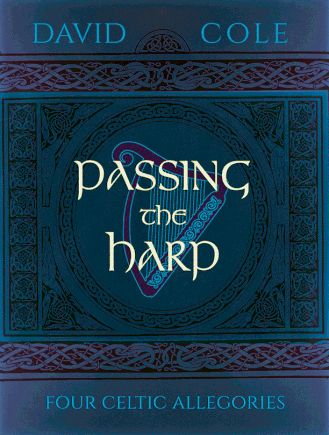Passing the Harp
four Celtic allegories

Four allegorical tales with a Celtic flavour. One ancient tale retold; 2 contemporary tales retold; and an original tale. At the end of each story, there is a reflection and meditation to encourage deeper thought.
“Storytelling has long been a part of our humanity…for thousands of years, stories have been told and collected, orally and through writing. Stories help us to make sense of the world...The ancient Celts, like many cultures, loved stories. The eighth-century historian Bede tells us in his Ecclesiastical History of the English People of the ancient Celtic tradition called “Passing of the Harp,” where communities would gather in the Mead Hall, or other communal hall, and tell stories through the evenings around a fire, with food and drink flowing. This tradition was continued in the Celtic monastic communities, such as the one in Whitby, where Bede makes mention of it…storytelling is all about: connecting deep truths with ordinary lives to make those lives extraordinary.” - from introduction.
Buy this book
“Storytelling has long been a part of our humanity…for thousands of years, stories have been told and collected, orally and through writing. Stories help us to make sense of the world...The ancient Celts, like many cultures, loved stories. The eighth-century historian Bede tells us in his Ecclesiastical History of the English People of the ancient Celtic tradition called “Passing of the Harp,” where communities would gather in the Mead Hall, or other communal hall, and tell stories through the evenings around a fire, with food and drink flowing. This tradition was continued in the Celtic monastic communities, such as the one in Whitby, where Bede makes mention of it…storytelling is all about: connecting deep truths with ordinary lives to make those lives extraordinary.” - from introduction.
Buy this book
